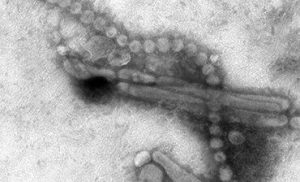Introduction
Swine influenza is a highly contagious respiratory disease in pigs caused by influenza A viruses (swIAV) which leads to production losses. The intensification of pork production systems and free livestock movement across borders fosters the spread of the virus in Europe. New variants, some with zoonotic potential, constantly emerge. Recent human pandemics have highlighted the zoonotic and reverse zoonotic potential of swine influenza and its risks for both animal and public health. Despite the burdens caused by swine influenza, surveillance across Europe is scanty and fragmented. Some countries even lack surveillance. This training school aims to teach participants on animal health surveillance in general with emphasis on influenza A in pigs as well as the herd-specific monitoring of influenza A on farms.
Training School Details
ESFLU-WG 3 is organizing a training school in order to strengthen the capacity in European countries for the design and implementation of influenza A surveillance and monitoring in pigs and evaluate current practices). The main informational details are presented in Table 1.
Table 1 Main informational details for the WG1, Training School
| Training Scope | Animal health surveillance principles, objectives and design Use of RiskSur evaluation tool Syndromic surveillance Farm – level monitoring of influenza |
| Date | 24th to 26th September 2025 |
| Duration | 3 training days |
| Location | LMU, Munich, Germany |
| No of trainees | 12 international + <8 local |
| Scientific Coordination and lecturers | Dr. Tijs Tobias, Utrecht University & Royal GD Prof. Dr. Gerdien van Schaik (Utrecht University) Prof. Carola Sauter-Louis, Friedrich Loeffler Institute, Germany)Dr. Julia Stadler, LMU, Kathrin Lillie-Jaschniski (CEVA Animal Health) |
| Application Coordination | Dr Dimitrios Papadopoulos (Aristotle University of Thessaloniki) |
Training School is essential to:
- Bridge knowledge gaps regarding theories of animal health surveillance programs and current practices for collecting information for Influenza A in swine.
- Develop best practice guidelines for specific purposes of influenza surveillance given priorities of public health, animal health or farm productivity.
- Fostering knowledge in early career scientists
- Note: phylogenetic analyses are NOT part of this training school
Profile of the candidates
- Preferred young scientists with research interest focused on epidemiology of swine influenza A virus and or animal health / public health surveillance.
- Preferably direct or indirectly indirectly involved in (swine) influenza A virus surveillance team at national, regional or company (multi-farm) level
- Basic skills in using MS Excel and MS Word
- Sufficient level of English language
- Able and allowed to travel to Munich Germany.
- Availability of own laptop is preferred
Registration
For on-site participation candidates are requested to provide a full curriculum vitae including a publications list and a one-page motivation letter. All applications for the training school must be submitted via email to the Training Grants Coordinator of the Action, Dr Papadopoulos Dimitrios (depapado@auth.gr), with subject ESFLU Training School 24th-26th Sept.
All applications will be equally evaluated. Gender, geography, career stage and qualifications of the applicant and their match to the WG3 objectives will be taken into consideration when evaluating the proposals
Deadline for applications submission is the 22nd of June 2025 (17.00 pm, CET).
Expenses Reimbursement
A financial contribution , that not necessarily cover all expenses related to the training school, will be provided by the Grand Holder of the Action. The maximum contribution complies with the COST annotated rules.
ESFLU training School: Designing surveillance for swine Influenza
Venue: LMU in Munich
Dates: 24-26 September 2025
Lecturers:
Prof. dr. Gerdien van Schaik (UU) (GVS)
Prof. dr. Carola Sauter-Louis (FLI) (CSL)
Prof. dr. Julia Stadler (LMU) (JST)
Dr. Kathrin Lillie-Jaschniski (CEVA) (KLJ)
Dr. Tijs Tobias (GD & UU) (TTO)
(to be confirmed) (tbc)
| Day 1 Wed Sept 24th | Day 2 Thu Sept 25th | Day 3 Fri Sept 26th | |
| Morning 9:00 | Travel | Lecture: Introduction to animal health surveillance; concepts and methods (GvS) | Lecture : Syndromic surveillance in animal health and scenario tree modelling to determine freedom of disease (GvS) |
| Short break 10:30-10:45 | |||
| Morning 10:45 | Lecture: Study design (tbc) | Lecture: Influenza from reference institute perspective (CSL) Lecture: Introducing the RISKSUR Surveillance DESIGN tool (GvS) Practical: design of own surveillance component (GvS) | Practical: Finishing surveillance component and prepare for presentation. |
| Lunch Break 12:15-13:15 | |||
| Afternoon 13:15 | Lecture: Sample size (tbc) (+ practicals) | Practical: design of own surveillance component (GvS) (C’td) Lecture: Farm level sampling (JST & KLJ) | Short presentations (4 groups 30 mins./group, and 30 mins. break) of the designed surveillance components |
| Short break 14:45-15:00 | |||
| Afternoon 15:00 | Lecture: Bias in design (TTO) | Practical: design of own surveillance component (GvS) Lecture: Risk-based surveillance (GvS) | Presentation of literature review on surveillance for Swine influenza A virus in Europe – PhD student of Vet Med Vienna |
| Afternoon 16:45 | Lecture: Software preparations | Practical: design of own surveillance component (GvS) | Evaluation and certificates |
| Evening Social program | Optional tour of facilities (LMU) | “Biergarten” | Oktoberfest, downtown Munich |


